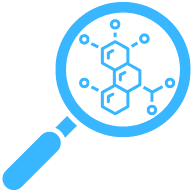Advice for Aspiring Biostatisticians: What I Wish I Knew Starting Out
Embarking on a biostatistics career path demands more than just a knack for numbers; it requires a multifaceted skill set that evolves with the landscape of data-driven decision making. This guide distills essential wisdom for newcomers, spotlighting pivotal areas like communication, continuous learning, and technical prowess. Navigate through the complex terrain of biostatistics, armed with insights that aim to illuminate and guide your professional journey.
- Emphasize Communication and Storytelling
- Embrace Lifelong Learning
- Master Core Statistical Concepts
- Develop Strong Programming Skills
- Seek Out Mentorship
- Cultivate Domain Knowledge
Emphasize Communication and Storytelling
If I could go back and give my younger self advice when I was just starting out, it would be this: Don't underestimate the power of communication and storytelling in biostatistics.
Early in my career, I thought success would be solely about mastering the technical side-developing models, crunching numbers, and perfecting statistical methods. And while those are undeniably important, what I wish I'd understood sooner is how essential it is to translate complex data into insights that non-statisticians can understand and act upon.
Biostatistics isn't just about the numbers; it's about the stories they tell. Whether you're working on a clinical trial, public health study, or epidemiological analysis, the ability to communicate findings in a way that resonates with stakeholders-from scientists to policymakers to the public-can make all the difference in the impact of your work.
Another piece of advice I'd share with my younger self is to embrace collaboration. Biostatistics rarely happens in a vacuum, and the best insights often emerge at the intersection of disciplines. Partnering with researchers, clinicians, or even software engineers has taught me so much more than I could have learned on my own.
Lastly, I'd tell myself to get comfortable with uncertainty. In biostatistics, you're often working with probabilities and incomplete data. Learning to make decisions and recommendations despite that uncertainty is a skill I've had to develop over time. I wish I had embraced that mindset earlier-it's not about having all the answers; it's about asking the right questions.
If I could sum it up, I'd tell my younger self: Focus as much on how you share your findings and collaborate with others as you do on the technical skills. Because in the end, your ability to make an impact depends not just on what you know but how you help others understand and use that knowledge.

Embrace Lifelong Learning
In the field of biostatistics, it is important to embrace lifelong learning because the field is constantly evolving with new techniques and methodologies. Staying current with the latest research and trends can provide a significant edge in one's career. It is also beneficial to engage in professional development programs and workshops.
Building a strong habit of continuous learning will keep skills sharp and relevant. Therefore, always strive to keep up with new knowledge and never stop learning.
Master Core Statistical Concepts
A strong understanding of core statistical concepts forms the foundation for a successful career in biostatistics. These basics create a solid base upon which complex techniques are built. It is crucial to thoroughly understand topics like probability, hypothesis testing, and regression analysis.
A deep grasp of these subjects will enable better data analysis and interpretation. Focus on mastering these essential concepts to boost your confidence and proficiency in the field.
Develop Strong Programming Skills
Mastering programming skills is essential for biostatisticians, as much of the work involves data manipulation and analysis. Learning languages such as R, SAS, and Python can greatly enhance one's efficiency and capabilities. Proficiency in these tools allows for more accurate and faster data processing.
It also opens up opportunities for automation and advanced analytics. Committing to developing strong programming skills will make one a more versatile and effective biostatistician.
Seek Out Mentorship
Finding a good mentor can significantly impact the career of an aspiring biostatistician. Mentorship provides guidance, support, and wisdom from experienced professionals in the field. It offers opportunities for networking, learning from others' experiences, and receiving feedback on one's work.
A mentor can help navigate the complexities of the career path and provide valuable industry insights. Seek out opportunities for mentorship to grow and succeed in biostatistics.
Cultivate Domain Knowledge
Cultivating domain knowledge is vital for biostatisticians to understand the context of the data they analyze. Having a deep understanding of the specific area of application, such as public health, clinical trials, or genetics, allows for more meaningful interpretations of data. This knowledge helps in identifying relevant questions and framing studies appropriately.
It also improves communication with subject matter experts. Make an effort to build strong domain knowledge to enhance the quality and impact of your work.

